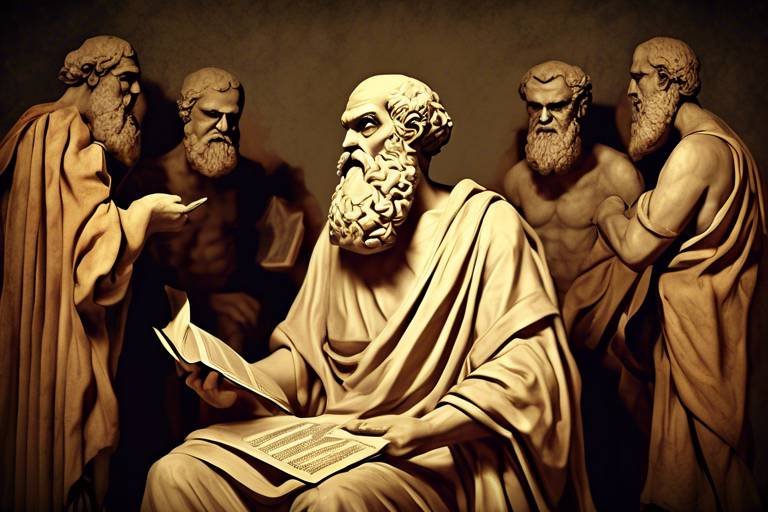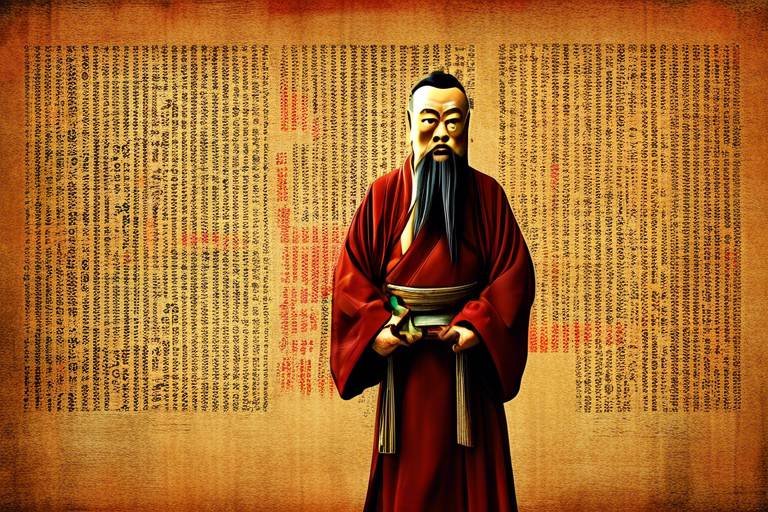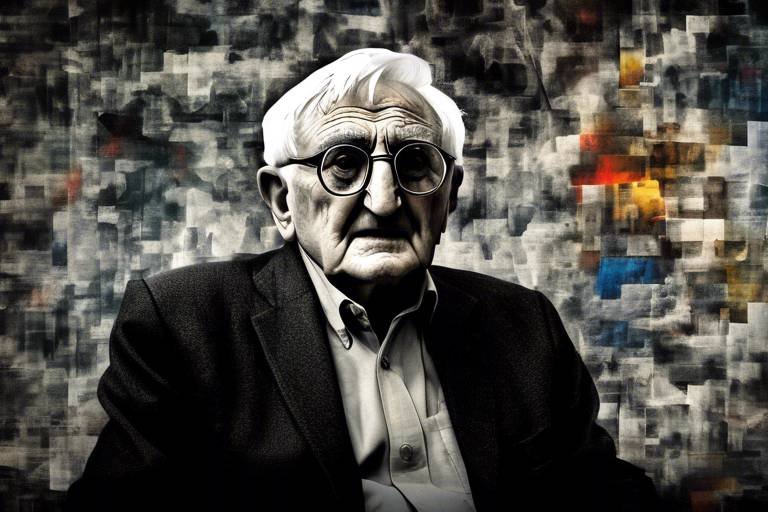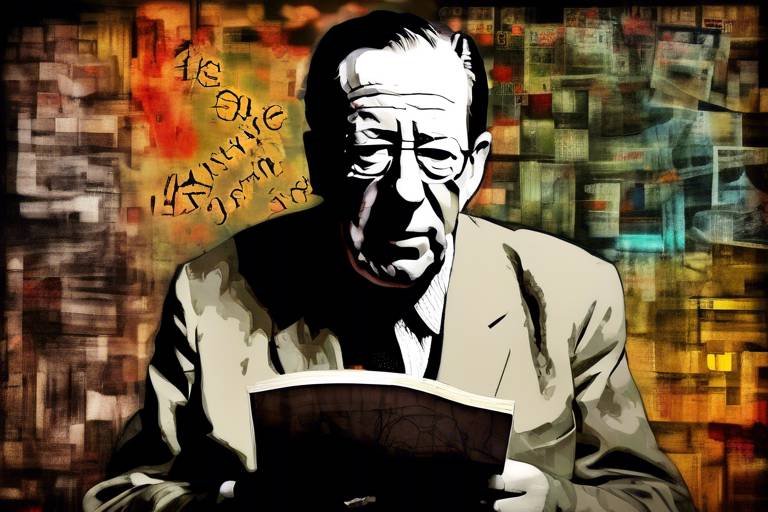The Revolutionary Ideas of Philosopher Frantz Fanon
Frantz Fanon, a name that resonates deeply within the realms of post-colonial theory and liberation movements, is a philosopher whose ideas continue to ignite passion and provoke thought. Born in Martinique and educated in France, Fanon's experiences shaped his revolutionary outlook on race, identity, and the lasting scars of colonialism. His writings are not just academic texts; they are a call to action, urging oppressed peoples to reclaim their narratives and identities. The essence of his work lies in the exploration of how colonialism impacts not only the physical landscape but also the very psyche of individuals and communities. This article delves into the transformative thoughts of Frantz Fanon, focusing on his contributions that have inspired countless activists and scholars alike.
Fanon's analysis of colonialism is profound, revealing its psychological effects on both the oppressor and the oppressed. He argues that colonialism is not merely a political or economic structure; it is a system that deeply influences identity and behavior. The colonized, subjected to constant dehumanization, often internalize a sense of inferiority, which can persist long after the formal end of colonial rule. This psychological legacy is not just a relic of the past; it continues to shape the identities and experiences of individuals today, leading to a complex interplay between self-perception and societal expectations.
In his seminal work, Black Skin, White Masks, Fanon dives into the intricacies of racial identity, exploring how internalized racism affects the self-perception of black individuals. He articulates the struggle against the imposed identity of the 'Other,' a concept that creates a dichotomy between the colonizers and the colonized. This notion of 'Otherness' is not just a theoretical construct; it manifests in everyday life, leading to feelings of alienation and a relentless quest for identity among oppressed populations. The impact of this struggle is profound, as individuals grapple with societal perceptions while yearning to reclaim their cultural heritage and self-worth.
Fanon posits that resistance through identity is not merely an act of defiance but a vital form of empowerment. He argues that embracing one's cultural identity is a powerful tool against colonial oppression. By affirming their heritage, individuals can challenge the narratives imposed upon them, fostering a sense of belonging and solidarity within their communities. This reclamation of identity is revolutionary, as it not only empowers individuals but also serves as a unifying force among those who have been historically marginalized.
One of the most controversial aspects of Fanon's philosophy is his argument that violence can be a necessary tool for liberation. He suggests that for the oppressed to reclaim their agency, they must engage in active resistance against their oppressors. This perspective challenges conventional notions of non-violence in the struggle for justice and raises critical questions about the ethics of resistance. Fanon’s call for violence is not an endorsement of chaos but rather a recognition of the desperate measures often required to dismantle oppressive systems.
Fanon also emphasizes the role of culture in the liberation process. He asserts that cultural revival is essential for fostering unity among colonized peoples. By reclaiming cultural narratives, individuals can build a shared identity that strengthens their collective resistance against oppression. This cultural renaissance is not just about nostalgia; it is about forging a new path forward, one that honors the past while actively shaping the future.
Art and literature emerge as critical components of this cultural revival. Fanon highlights how creative expression serves as a powerful means of resistance, allowing colonized individuals to articulate their experiences and aspirations. Through storytelling, poetry, and visual arts, the oppressed can challenge dominant narratives and assert their humanity. This creative resistance not only fosters individual empowerment but also galvanizes collective action, inspiring movements for social change.
Education is another cornerstone of Fanon's philosophy. He advocates for raising consciousness among the oppressed, arguing that education is a tool for empowerment. By fostering critical awareness, individuals can better understand their circumstances and inspire collective action. This emphasis on education as a means of liberation is particularly relevant today, as movements for social justice continue to emphasize the importance of knowledge and awareness in the fight against systemic oppression.
Fanon's revolutionary ideas have left an indelible mark on social movements and academic discourse. His work continues to influence contemporary thinkers and activists who strive for social justice and equality. As we reflect on his contributions, it becomes clear that Fanon’s insights are not just historical artifacts; they are vibrant, living ideas that resonate with the struggles of marginalized communities around the world. His legacy is a testament to the enduring power of thought and action in the pursuit of liberation.
- Who was Frantz Fanon?
Frantz Fanon was a Martinican philosopher, psychiatrist, and revolutionary whose work focused on the psychological effects of colonialism and the struggle for liberation. - What is 'Otherness' in Fanon's context?
'Otherness' refers to the social and psychological divide created by colonialism, where colonized individuals are seen as outsiders or 'others' in their own land. - Why does Fanon argue for violence in liberation?
Fanon believes that violence can be a necessary means for the oppressed to reclaim their agency and dismantle oppressive systems. - How does culture play a role in Fanon's philosophy?
Fanon emphasizes the importance of cultural revival in fostering unity and resistance among colonized peoples, asserting that reclaiming cultural narratives is essential for liberation.

Colonialism and Its Psychological Effects
Frantz Fanon's exploration of colonialism goes beyond mere political structures; it dives deep into the psychological impact that colonial rule has on both the oppressors and the oppressed. He argues that colonialism is not just a physical domination but also an insidious form of mental control. The colonizer, in their quest for power, imposes a worldview that dehumanizes the colonized, leading to a profound sense of inferiority among them. This psychological warfare creates a lingering identity crisis, where the colonized struggle to reconcile their indigenous heritage with the imposed values of the colonizer.
Fanon articulates that the effects of colonialism are not confined to the period of direct rule but extend far into the future. The psychological scars left by oppression can manifest in various ways, including internalized racism, self-hatred, and a fractured sense of identity. For instance, many individuals may find themselves caught in a cycle of self-denial, where they reject their own culture in favor of the dominant one. This phenomenon can lead to a sense of alienation, as the colonized individuals feel disconnected from their roots.
To illustrate this, consider the following table that summarizes the psychological effects of colonialism:
| Psychological Effect | Description |
|---|---|
| Internalized Racism | The acceptance of negative stereotypes about one’s own racial group, leading to self-doubt and diminished self-worth. |
| Alienation | A feeling of disconnection from one’s culture and community, often resulting in a loss of identity. |
| Identity Crisis | The struggle to define oneself amidst conflicting cultural narratives, often leading to confusion and instability. |
| Self-Hatred | A deep-seated disdain for one’s own identity, often fueled by societal rejection and historical oppression. |
Fanon's insights reveal that the psychological effects of colonialism are complex and multifaceted. They extend beyond individual experiences to shape collective identities and social dynamics. The colonized, in their quest for liberation, often face the daunting task of overcoming these psychological barriers. This struggle is not merely about reclaiming land or political power; it is also about reclaiming one's mind and sense of self. The journey toward psychological liberation is fraught with challenges, but it is essential for achieving true freedom.
In essence, Fanon’s work compels us to consider the long-lasting implications of colonialism on mental health and identity. Understanding these psychological effects is crucial for anyone seeking to address the legacies of colonialism in contemporary society. By acknowledging the profound impact of oppression on the psyche, we can begin to foster healing and empowerment within colonized communities.
- What are the main psychological effects of colonialism according to Fanon? Fanon identifies effects such as internalized racism, alienation, identity crisis, and self-hatred.
- How does Fanon suggest overcoming the psychological impacts of colonialism? He emphasizes the importance of reclaiming cultural identity and fostering a sense of self-worth among the colonized.
- Why is understanding the psychological effects of colonialism important? It is essential for addressing the legacies of oppression and promoting healing within affected communities.

Black Skin, White Masks
In his groundbreaking work, , Frantz Fanon dives deep into the intricate layers of racial identity, exposing the psychological scars left by colonialism and racism. This book is not just a collection of theories; it's a profound exploration of how the internalization of racism can warp the self-perception of black individuals in a world dominated by white narratives. Fanon articulates how the colonized often feel compelled to adopt the values and behaviors of their oppressors, leading to a dissonance that can be both debilitating and alienating.
Fanon's examination reveals that the struggle with identity is not merely a personal battle but a collective experience shared among those who have been marginalized. He introduces the concept of 'Otherness', which underscores the dichotomy created between the colonizers and the colonized. This division fosters a sense of inferiority among the oppressed, making them feel as if they must wear a mask—an identity that is not their own—to navigate a society that often refuses to acknowledge their humanity. The psychological impact of this 'masking' process can lead to a fractured sense of self, where individuals grapple with the desire to conform while yearning to embrace their authentic identities.
Furthermore, Fanon argues that this internal conflict can manifest in various ways, affecting how individuals perceive themselves and interact with others. The pressure to conform to societal expectations can lead to a loss of cultural heritage and self-worth. In a world that often prioritizes whiteness, the struggle to reclaim one's identity becomes a vital act of resistance. Fanon encourages individuals to reject the imposed identities and instead embrace their cultural roots, which can serve as a powerful means of reclaiming agency.
To illustrate the complexities of this theme, consider the following table that summarizes key ideas from Fanon's work:
| Key Concept | Description |
|---|---|
| Otherness | The perception of the colonized as fundamentally different from the colonizer, leading to alienation. |
| Masking | The act of adopting the identity and behaviors of the oppressor to fit into societal norms. |
| Cultural Reclamation | The process of embracing one's cultural identity as a form of resistance against colonial narratives. |
Fanon's insights into the psychological ramifications of colonialism and racism remain strikingly relevant today. His work challenges us to confront the uncomfortable truths about identity, oppression, and resistance. By recognizing the masks we wear and the roles we play in a racially charged society, we can begin to dismantle the barriers that divide us. Ultimately, Fanon's call to action is clear: to forge a path toward liberation, we must first understand and embrace our true selves, free from the constraints of imposed identities.
- What is the main theme of Black Skin, White Masks? The main theme revolves around the psychological impact of colonialism and racism on identity formation among black individuals.
- How does Fanon define 'Otherness'? Fanon defines 'Otherness' as the perception that the colonized are fundamentally different from the colonizers, which creates a sense of alienation.
- Why is cultural reclamation important according to Fanon? Cultural reclamation is vital as it empowers individuals to resist colonial narratives and embrace their authentic identities.

The Concept of 'Otherness'
Frantz Fanon's exploration of the concept of 'Otherness' is nothing short of revolutionary. It dives deep into the psychological and social dynamics that arise from colonial relationships, illustrating how these dynamics create a stark divide between the colonizers and the colonized. This division is not merely a physical one; it permeates the very essence of identity, leading to a profound sense of alienation among those who are oppressed. Fanon argues that the colonized are often viewed as the 'Other', a term that encapsulates the idea of being fundamentally different and inferior to the dominant group. This perception is not just an external label; it seeps into the psyche of the oppressed, shaping their self-image and worldview.
Imagine walking into a room filled with people who don't see you as an equal but rather as a curiosity or a stereotype. This is the reality for many individuals caught in the web of colonialism. The colonizers, in their quest for power, create narratives that dehumanize the colonized, stripping them of their identity and reducing them to mere caricatures. This leads to a cycle of internalized oppression, where the oppressed begin to see themselves through the lens of their oppressors, often leading to a profound identity crisis.
Fanon's analysis highlights the struggle for identity that arises from this sense of 'Otherness'. The colonized individuals grapple with the dichotomy of wanting to embrace their cultural heritage while simultaneously feeling the pressure to conform to the expectations of the dominant culture. This internal conflict can manifest in various ways, including:
- A rejection of one's cultural roots in favor of assimilation.
- A desperate attempt to reclaim cultural identity through various forms of expression.
- Feelings of inadequacy and inferiority that stem from societal perceptions.
In essence, the concept of 'Otherness' is a double-edged sword. While it serves to alienate and oppress, it also fuels a desire for resistance and reclamation of identity. Fanon posits that recognizing and confronting this 'Otherness' can be a powerful step towards liberation. By embracing their cultural identities, individuals can challenge the narratives imposed upon them and begin to forge a new sense of self—one that is not defined by the oppressor but by their own lived experiences and cultural heritage. This journey towards self-acceptance and empowerment is crucial in the broader struggle against colonial oppression.
Ultimately, Fanon's insights into 'Otherness' remind us that identity is not a fixed construct but rather a fluid and evolving narrative shaped by both personal experiences and societal influences. Understanding this concept allows us to appreciate the complexities of identity formation in a post-colonial context, paving the way for a more inclusive and equitable society.

Impact on Identity Formation
The struggle against 'Otherness' profoundly influences the formation of identity among colonized individuals. Frantz Fanon argues that when a group is subjected to systemic oppression, their sense of self is often distorted. This distortion manifests in various ways, leading individuals to grapple with their cultural heritage and societal perceptions. Imagine trying to navigate a world where your very existence is questioned; this is the reality for many who face the oppressive gaze of colonialism.
Fanon suggests that the colonized often internalize the negative stereotypes imposed upon them, which can lead to a fragmented identity. For instance, an individual might feel the need to conform to the expectations of the dominant culture, sacrificing their own cultural identity in the process. This internal conflict can create a sense of alienation, where the individual feels caught between two worlds, neither of which fully accepts them. The psychological toll of this struggle can be immense, leading to feelings of inadequacy and self-doubt.
Moreover, the quest for identity becomes a battleground where the colonized must reclaim their narrative. Fanon emphasizes that this reclamation is not merely an act of resistance but a vital step towards healing and self-acceptance. By embracing their cultural roots, individuals can begin to forge a new identity that is not defined by colonial standards but rather by their own experiences and values. This journey is akin to a phoenix rising from the ashes, where the individual transforms their pain into strength and resilience.
In this context, cultural revival plays a crucial role in identity formation. It fosters a sense of belonging and unity among the oppressed, allowing them to connect with their heritage and each other. When individuals come together to celebrate their culture, they create a powerful collective identity that challenges the narratives imposed by the colonizers. This communal aspect of identity formation is essential, as it reinforces the idea that they are not alone in their struggle.
Ultimately, the impact of 'Otherness' on identity formation is a complex interplay of oppression, resistance, and reclamation. By understanding and addressing these dynamics, individuals can begin to reclaim their identity and assert their place in the world. As Fanon eloquently puts it, the fight for identity is not just a personal struggle; it is a collective movement towards liberation and self-determination.
- What is 'Otherness' as described by Frantz Fanon?
'Otherness' refers to the way colonizers perceive the colonized as fundamentally different and inferior, creating a divide that leads to alienation and identity struggles. - How does colonialism affect identity?
Colonialism distorts the self-perception of the oppressed, leading them to internalize negative stereotypes and struggle with their cultural identity. - What role does cultural revival play in identity formation?
Cultural revival helps individuals reconnect with their heritage, fostering a sense of belonging and unity that empowers them to reclaim their identity. - Can embracing cultural identity be a form of resistance?
Yes, embracing cultural identity is a powerful form of resistance against colonial oppression, allowing individuals to challenge imposed narratives and assert their self-worth.
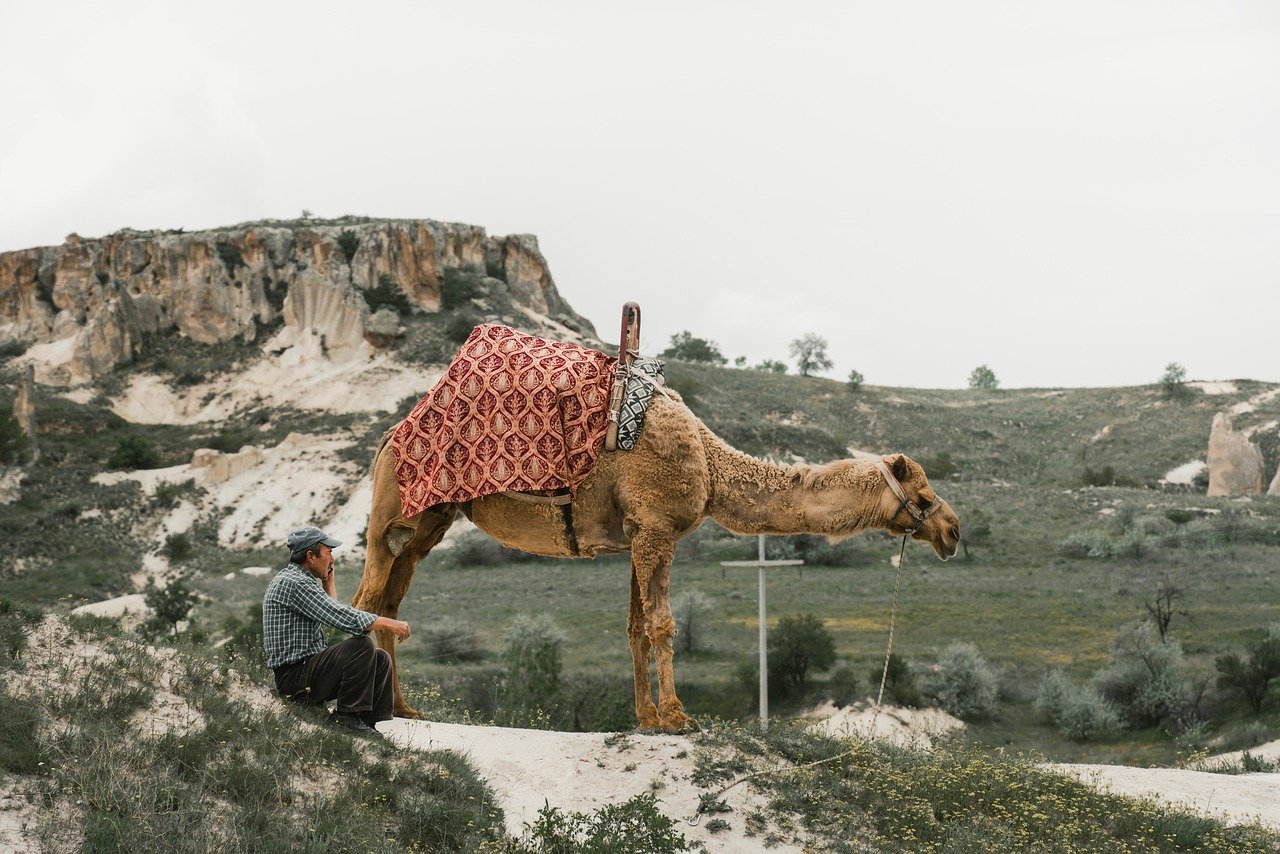
Resistance Through Identity
Frantz Fanon believed that embracing one's cultural identity is not just an act of self-affirmation but a powerful form of resistance against the oppressive structures of colonialism. In a world where the colonized are often stripped of their identity and forced to adopt the values and norms of their oppressors, reclaiming one’s heritage becomes a revolutionary act. It's like planting a flag in the soil of your own history, asserting that you exist beyond the confines set by others. This reclamation is crucial in the journey toward liberation.
Fanon's assertion is that identity is not merely a personal matter; it serves as a collective shield against the dehumanizing effects of colonial rule. When individuals embrace their cultural backgrounds, they not only uplift themselves but also strengthen their communities. This is particularly significant in a context where the colonized have been taught to view their own cultures as inferior. By celebrating their identities, they challenge the very narratives that seek to diminish them. It’s a bit like a phoenix rising from the ashes, where the act of embracing one’s identity ignites a sense of pride and purpose.
Moreover, Fanon emphasizes that this resistance through identity is multifaceted. It manifests in various forms, such as:
- Artistic Expression: Art becomes a means to express cultural narratives and experiences, allowing individuals to communicate their struggles and aspirations.
- Community Engagement: By fostering a sense of belonging, communities can unite in their shared identity, creating a formidable front against oppression.
- Language and Tradition: Preserving and promoting native languages and traditions serves as a powerful reminder of one’s roots and history.
Fanon's perspective invites us to consider the broader implications of identity in the fight against oppression. It suggests that when people reclaim their identities, they are not just resisting colonial narratives; they are also crafting new stories that celebrate their existence and humanity. This process is not without its challenges, as individuals may struggle with internalized racism or societal pressures. However, the journey towards embracing one’s identity is a vital step in the path to liberation.
In essence, Fanon’s insights on resistance through identity provide a roadmap for those seeking to reclaim their agency. It underscores the idea that true liberation cannot occur without a deep understanding and appreciation of one’s self. As individuals learn to navigate the complexities of their identities, they find strength in their heritage, ultimately transforming their struggles into a powerful narrative of resistance.
- What is the main idea of resistance through identity according to Fanon?
Fanon argues that embracing one’s cultural identity is a powerful form of resistance against colonial oppression, empowering individuals to reclaim their heritage and challenge imposed narratives. - How does cultural identity contribute to community strength?
By fostering a shared sense of belonging, cultural identity helps unite individuals within a community, creating a collective front against oppression. - What role does art play in resistance?
Art serves as a means of expressing cultural narratives and experiences, allowing individuals to articulate their struggles and aspirations in the face of oppression.

Violence as a Means of Liberation
Frantz Fanon’s perspective on violence is both provocative and essential to understanding his broader philosophy of liberation. He argues that violence is not merely an act of aggression but a necessary tool for the oppressed to reclaim their agency and assert their humanity. In a world where colonial powers have systematically stripped away the dignity and identity of colonized peoples, Fanon suggests that violence becomes a form of catharsis—a way to confront the deep-seated trauma inflicted by oppression.
Fanon's assertion that violence is a cleansing force highlights the psychological dimensions of liberation. He posits that the act of rising up against oppressors allows individuals to reclaim their sense of self, which has been eroded under colonial rule. To illustrate this, consider the metaphor of a dam: for years, the pent-up frustrations and injustices faced by the colonized are held back, leading to a potential overflow. When the dam finally bursts through acts of resistance, it not only releases the built-up pressure but also creates a new landscape where freedom can flourish.
However, it’s crucial to understand that Fanon does not glorify violence for its own sake. Instead, he sees it as a strategic necessity in the fight against colonialism. He argues that the oppressor's violence is already an established norm, and thus, the oppressed must respond in kind to disrupt the status quo. This idea raises important questions about morality and ethics in the context of liberation movements. Are there circumstances where violence is justified? Can it be a legitimate form of resistance? These questions remain relevant today as various movements around the world grapple with the complexities of achieving justice.
Fanon's thoughts on violence can be summarized through several key points:
- Reclaiming Agency: Violence allows the oppressed to reclaim their agency and assert their identity.
- Catharsis: Acts of resistance serve as a psychological release from the trauma of oppression.
- Strategic Necessity: In a world where the oppressor uses violence, the oppressed may need to respond with similar force to effect change.
Ultimately, Fanon’s examination of violence as a means of liberation challenges us to rethink our understanding of resistance. He invites us to consider the profound implications of fighting back against systemic oppression, not just for the sake of the struggle but as a crucial step toward genuine liberation. His work encourages a dialogue about the ethical dimensions of resistance and the lengths to which individuals and communities will go to reclaim their freedom and dignity.
- What does Fanon mean by violence as a means of liberation?
Fanon argues that violence is a necessary response to oppression, allowing the oppressed to reclaim their agency and identity. - Is violence always justified in liberation movements?
Fanon suggests that in the context of systemic oppression, violence can be seen as a strategic necessity, though it raises complex ethical questions. - How does Fanon's view on violence relate to contemporary movements?
Many contemporary movements grapple with the question of whether violence is an acceptable form of resistance against systemic injustices, echoing Fanon’s insights.
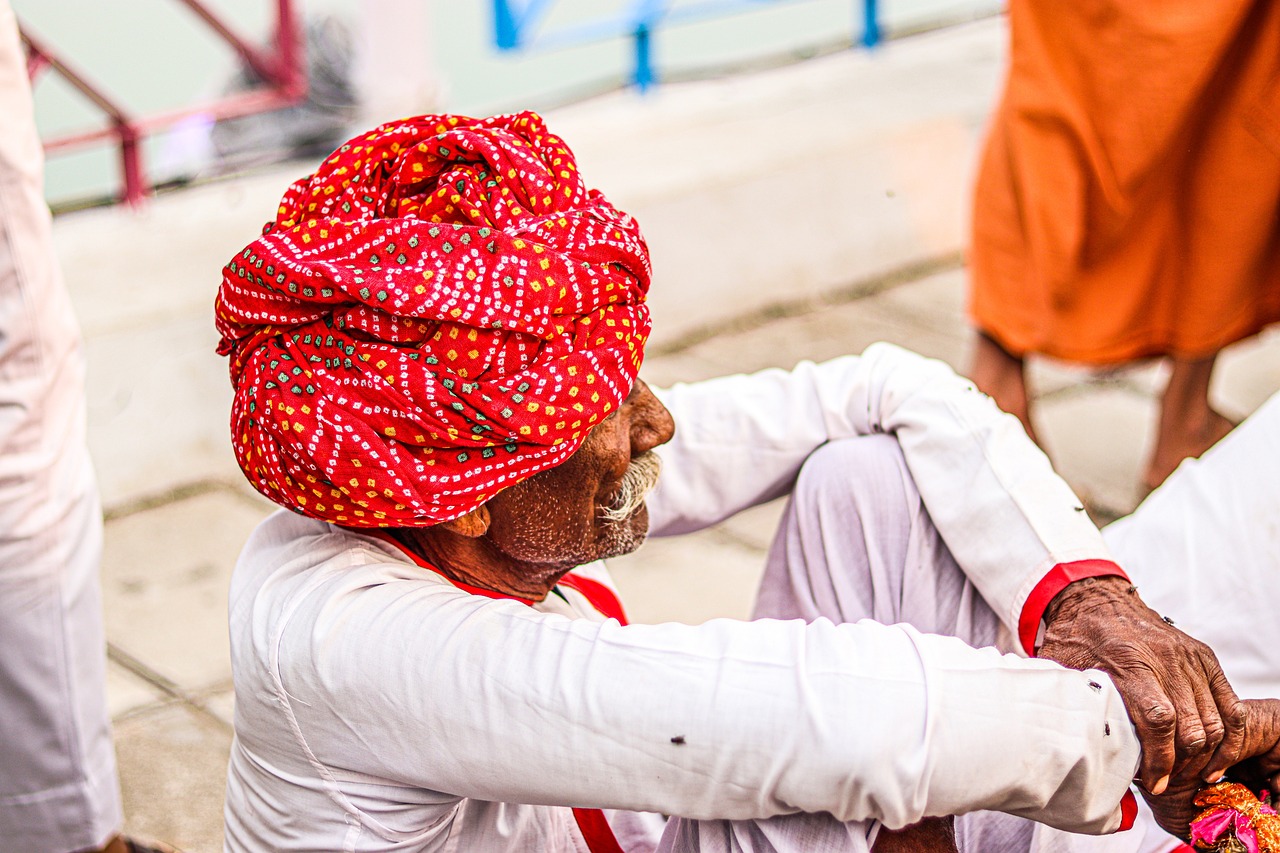
The Role of Culture in Liberation
Frantz Fanon firmly believed that culture plays a pivotal role in the liberation of oppressed peoples. He argued that the reclamation of cultural identity is not just a matter of pride but a crucial step towards achieving true freedom. When colonized individuals reconnect with their cultural roots, they not only reclaim their history but also their agency. This cultural revival acts as a powerful antidote to the dehumanization inflicted by colonial forces. In a world that often tries to erase or diminish their identity, embracing one’s culture becomes an act of defiance.
Fanon emphasized that culture is a unifying force that can galvanize communities to resist oppression. By fostering a shared sense of identity, cultural practices can strengthen bonds among individuals who have been marginalized. This collective identity is essential for mobilizing resistance movements, as it helps to cultivate a sense of belonging and purpose. When people come together under a shared cultural banner, they can challenge the narratives imposed upon them and create their own stories of resistance and resilience.
Moreover, Fanon highlighted the significance of art and literature as vehicles for cultural expression and resistance. Creative works serve as a means to articulate the pain, struggles, and aspirations of oppressed communities. Through poetry, music, and visual arts, individuals can convey their experiences in ways that resonate deeply with others. This artistic expression not only preserves cultural heritage but also inspires collective action. Fanon believed that the act of creating art is, in itself, a form of liberation, as it allows individuals to assert their identity and challenge the dominant narratives that seek to silence them.
In addition to art, education emerges as another critical aspect of cultural liberation. Fanon argued that raising consciousness among the oppressed is essential for fostering critical awareness. Education should not merely be a tool for assimilation into the dominant culture; instead, it should empower individuals to understand their history, their struggles, and their potential for change. By teaching marginalized communities about their cultural heritage and the injustices they face, education can inspire a sense of agency that fuels resistance.
Ultimately, the role of culture in liberation is multifaceted. It encompasses the revival of identity, the power of artistic expression, and the transformative potential of education. As Fanon articulated, culture is not just a backdrop to the struggle for liberation; it is a driving force that can inspire and unite individuals in their quest for freedom. In a world still grappling with the legacies of colonialism, Fanon's insights remain profoundly relevant, reminding us that the path to liberation is deeply intertwined with cultural reclamation.
- What is the significance of culture in liberation movements? Culture serves as a unifying force that helps oppressed individuals reclaim their identity and foster a sense of belonging.
- How does art contribute to resistance? Art allows individuals to express their experiences and aspirations, serving as a powerful means of articulating their struggles.
- Why is education important for oppressed communities? Education raises awareness about cultural heritage and injustices, empowering individuals to take action against oppression.

Art and Literature as Resistance
Frantz Fanon profoundly understood the power of art and literature as tools for resistance against colonial oppression. In his view, creative expression is not merely a form of entertainment; it serves as a vital means of articulating the experiences, struggles, and aspirations of colonized peoples. Through art and literature, individuals can reclaim their narratives, challenge dominant ideologies, and foster a sense of community and identity. This transformative potential is what makes art a formidable weapon in the fight against oppression.
Consider the role of literature in this context. Writers like Aimé Césaire and
Art, too, plays a critical role in resistance. From powerful murals to evocative music, artistic expressions capture the emotions and experiences of oppressed communities. For instance, the Black Arts Movement in the United States emerged as a response to systemic racism, using poetry, theater, and visual arts to assert black identity and challenge societal norms. These artistic endeavors not only provide a platform for resistance but also foster a sense of solidarity among individuals fighting for liberation.
Moreover, Fanon believed that engaging with art and literature could spark critical consciousness among the oppressed. By consuming and creating cultural works, individuals begin to question the status quo and recognize the need for change. This process of consciousness raising is essential for mobilizing communities, inspiring collective action, and fostering a shared vision of liberation. In this way, art and literature become catalysts for social transformation, encouraging individuals to envision a world free from oppression.
In summary, Fanon’s insights into art and literature as forms of resistance reveal their profound impact on identity formation and social change. They empower individuals to reclaim their narratives, challenge colonial ideologies, and foster a sense of unity among oppressed populations. As we continue to navigate the complexities of identity and resistance in contemporary society, Fanon’s ideas remind us that the creative spirit can be a powerful ally in the struggle for liberation.
- What is Frantz Fanon's main contribution to post-colonial theory?
Fanon is known for his analysis of the psychological effects of colonialism and how it shapes identity and behavior. His work emphasizes the importance of cultural identity and resistance in the face of oppression. - How does Fanon view violence in the context of liberation?
Fanon controversially argues that violence can be a necessary tool for liberation, suggesting that oppressed individuals must reclaim their agency through active resistance against their oppressors. - Why is art important in the context of resistance?
Art serves as a powerful means of expression, allowing individuals to articulate their experiences and aspirations. It fosters community, challenges dominant narratives, and can inspire critical consciousness among the oppressed.
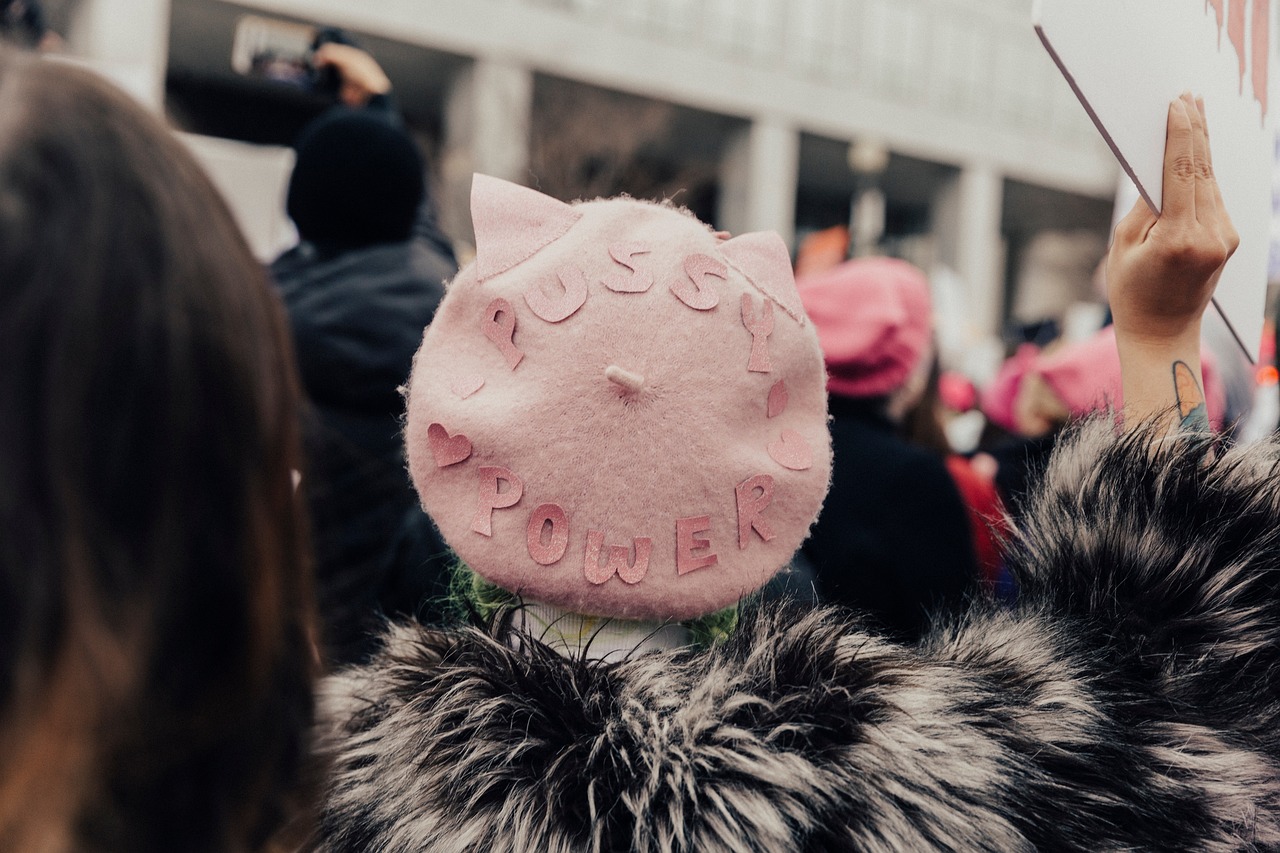
Education and Consciousness Raising
Frantz Fanon placed immense importance on education as a pivotal tool for empowerment among the oppressed. He believed that education is not merely about acquiring knowledge; it is about fostering a critical consciousness that enables individuals to challenge the status quo. By raising awareness of their circumstances, individuals can begin to understand the systemic forces that shape their realities. This understanding is crucial for igniting a desire for change and mobilizing collective action.
Fanon argued that traditional education systems often perpetuate colonial ideologies, reinforcing the very structures that oppress marginalized communities. Therefore, he advocated for a reimagined educational framework that prioritizes cultural relevance and critical thinking. This approach would not only help individuals reclaim their identities but also empower them to articulate their struggles and aspirations effectively. In essence, education becomes a form of resistance, equipping individuals with the tools necessary to dismantle oppressive narratives.
One of the key aspects of Fanon's vision for education is its role in community building. He believed that fostering a sense of solidarity among the oppressed is vital for effective resistance. Education should encourage dialogue and collaboration, allowing individuals to share their experiences and learn from one another. This communal approach not only strengthens bonds but also amplifies voices that have been historically marginalized. When individuals come together, they can create a powerful force for change.
Moreover, Fanon emphasized the significance of cultural education. He argued that understanding one’s cultural heritage is essential for self-empowerment. By reconnecting with their roots, individuals can challenge the internalized racism and inferiority complex often instilled by colonial education systems. This cultural revival fosters a sense of pride and belonging, which are crucial for building resilience against oppression. Education, in this context, becomes a pathway to rediscovering one’s identity and reclaiming agency.
In summary, Fanon’s perspective on education and consciousness raising underscores the transformative power of knowledge. By prioritizing critical thinking, cultural relevance, and community engagement, education can serve as a catalyst for liberation. As individuals awaken to their potential and unite in their struggles, they can forge a path toward a more just and equitable society.
- What is Frantz Fanon's main argument regarding education?
Fanon argues that education should empower individuals by fostering critical consciousness and cultural awareness, enabling them to challenge oppressive systems. - How does Fanon view traditional education systems?
He critiques traditional education for perpetuating colonial ideologies and emphasizes the need for an educational framework that promotes cultural relevance and critical thinking. - Why is cultural education important according to Fanon?
Cultural education helps individuals reconnect with their heritage, fostering pride and resilience against internalized racism and oppression. - What role does community play in Fanon's vision of education?
Community is crucial for building solidarity among the oppressed, allowing individuals to share experiences and strengthen their collective voice for change.

Legacy and Influence
This article explores the transformative thoughts of Frantz Fanon, focusing on his contributions to post-colonial theory, identity, and liberation movements. His work continues to inspire activists and scholars alike.
Fanon's analysis of colonialism delves into its profound psychological impact on both colonizers and the colonized, revealing how oppression shapes identity and behavior in ways that persist long after colonial rule ends.
In his seminal work, Fanon examines the complexities of racial identity, exploring how internalized racism and societal expectations affect the self-perception of black individuals in a predominantly white world.
Fanon discusses the notion of 'Otherness' and how it creates a dichotomy between colonizers and the colonized, leading to alienation and a struggle for identity among oppressed populations.
The struggle against 'Otherness' significantly influences identity formation, as individuals grapple with societal perceptions while seeking to reclaim their cultural heritage and self-worth.
Fanon posits that embracing one's cultural identity is a form of resistance against colonial oppression, empowering individuals to challenge the narratives imposed upon them.
Fanon controversially argues that violence can be a necessary tool for liberation, suggesting that the oppressed must reclaim their agency through active resistance against their oppressors.
Fanon emphasizes the importance of cultural revival in the liberation process, asserting that reclaiming cultural narratives is essential for fostering unity and resistance among colonized peoples.
Exploring the role of art and literature, Fanon highlights how creative expression can serve as a powerful means of resistance, enabling colonized individuals to articulate their experiences and aspirations.
Fanon advocates for education as a tool for empowerment, arguing that raising consciousness among the oppressed is crucial for fostering critical awareness and inspiring collective action.
Frantz Fanon's revolutionary ideas have left an indelible mark on social movements and academic discourse. His writings not only challenged the status quo but also provided a framework for understanding the complexities of identity and resistance in a post-colonial world. The impact of his work can be felt across various fields, including sociology, psychology, and political science. Activists and scholars today continue to draw inspiration from his insights, particularly in the realms of anti-colonialism and social justice.
Fanon's influence is evident in contemporary movements that seek to address systemic oppression, such as Black Lives Matter and various indigenous rights campaigns. His assertion that violence can be a necessary means of liberation has sparked extensive debate, yet it remains a focal point for those advocating for radical change. Furthermore, his emphasis on cultural identity as a tool for resistance resonates deeply with marginalized communities striving to reclaim their narratives.
To illustrate the breadth of Fanon's influence, consider the following table that highlights key areas impacted by his thought:
| Field | Influence |
|---|---|
| Sociology | Framework for understanding race relations and identity politics. |
| Psychology | Insights into the psychological effects of colonialism on the oppressed. |
| Political Science | Influence on anti-colonial movements and revolutionary theory. |
| Art and Literature | Encouragement of creative expression as a form of resistance. |
In summary, Fanon's legacy is not just confined to his own time; it continues to resonate with new generations of thinkers and activists. His call for a collective awakening and empowerment remains relevant as societies grapple with the lasting effects of colonialism and systemic inequality.
- What are Frantz Fanon's main contributions to post-colonial theory?
Fanon's main contributions include his analysis of the psychological effects of colonialism, the concept of 'Otherness', and the role of violence in liberation movements. - How does Fanon view the relationship between identity and culture?
Fanon believes that cultural identity is crucial for resistance against colonial oppression and that reclaiming one's cultural heritage is a form of empowerment. - What is the significance of Fanon's work today?
Fanon's work continues to inspire activists and scholars in their fight against systemic oppression and social injustice, particularly in movements focused on racial equality and indigenous rights.
Frequently Asked Questions
- What are Frantz Fanon's main contributions to post-colonial theory?
Frantz Fanon is renowned for his profound insights into the psychological effects of colonialism and the complexities of racial identity. His works, particularly "Black Skin, White Masks," delve into how colonization shapes self-perception and identity among the colonized. He emphasizes the importance of cultural revival and the reclamation of identity as essential components of liberation movements.
- How does Fanon describe the psychological impact of colonialism?
Fanon argues that colonialism inflicts deep psychological scars on both the oppressor and the oppressed. He explores how the experience of oppression alters identity, leading to internalized racism and a struggle for self-worth among the colonized. This psychological impact often persists long after colonial rule has ended, affecting societal dynamics and individual behaviors.
- What does Fanon mean by 'Otherness'?
'Otherness' refers to the process by which colonizers define the colonized as different, inferior, and outside the norm. This dichotomy fosters alienation and complicates identity formation for the oppressed. Fanon highlights how this concept creates significant barriers for individuals seeking to reclaim their cultural heritage and self-identity.
- Why does Fanon believe violence can be a necessary tool for liberation?
Fanon controversially posits that violence may be essential for the oppressed to reclaim their agency and fight against their oppressors. He argues that the act of resistance through violence can serve as a catalyst for liberation, allowing the oppressed to assert their identity and challenge the status quo.
- What role does culture play in Fanon's vision of liberation?
Fanon believes that cultural revival is crucial for the liberation process. By reclaiming cultural narratives and embracing their heritage, colonized peoples can foster unity and resistance. He emphasizes that art and literature serve as powerful forms of expression, enabling individuals to articulate their experiences and aspirations against colonial oppression.
- How does Fanon view education in the context of empowerment?
Fanon advocates for education as a vital tool for empowerment and consciousness-raising. He argues that increasing awareness among the oppressed is essential for fostering critical thinking and inspiring collective action. Education, in his view, is a means to challenge oppressive narratives and promote social justice.
- What is Fanon's legacy in contemporary social movements?
Fanon's revolutionary ideas continue to inspire activists and scholars today. His work has left an indelible mark on social movements, influencing contemporary thinkers who fight against systemic oppression and advocate for social justice. His insights into identity, resistance, and the effects of colonialism remain relevant in ongoing struggles for equality and human rights.


